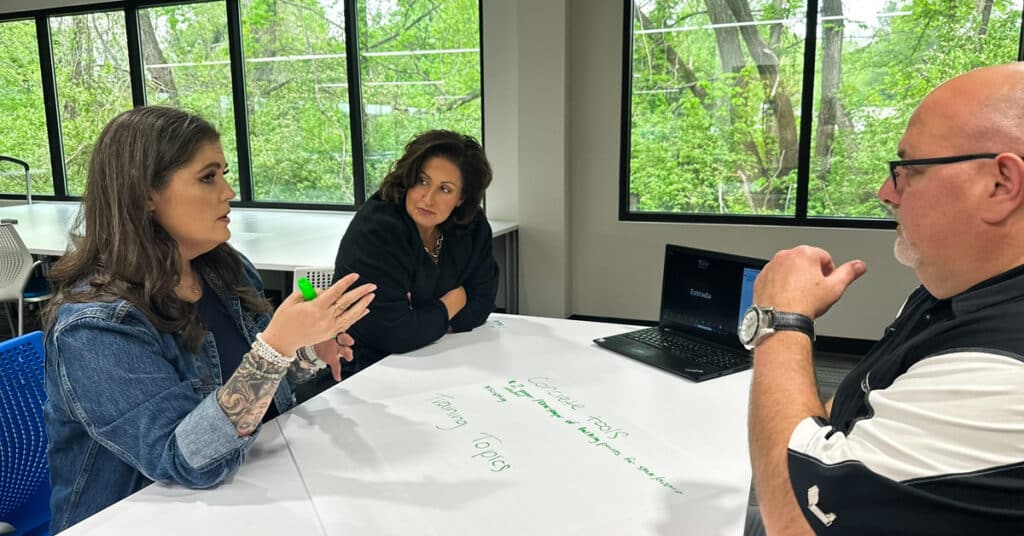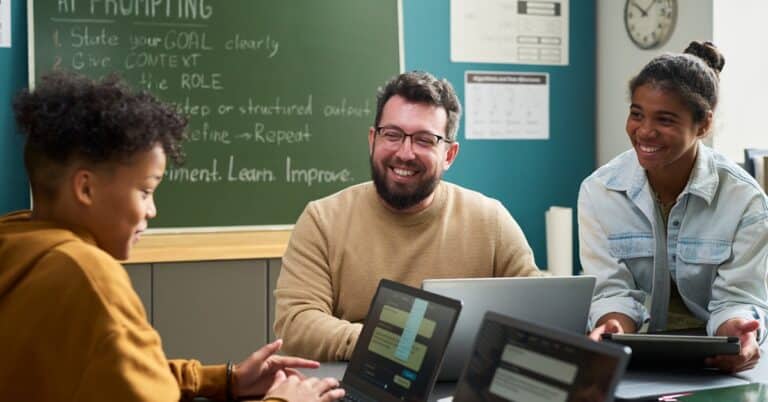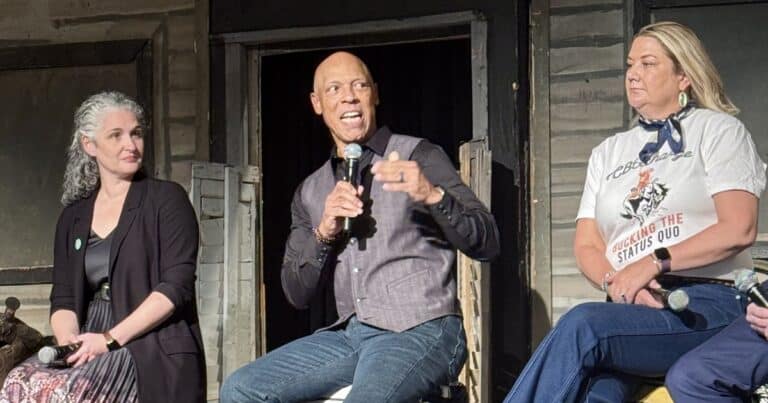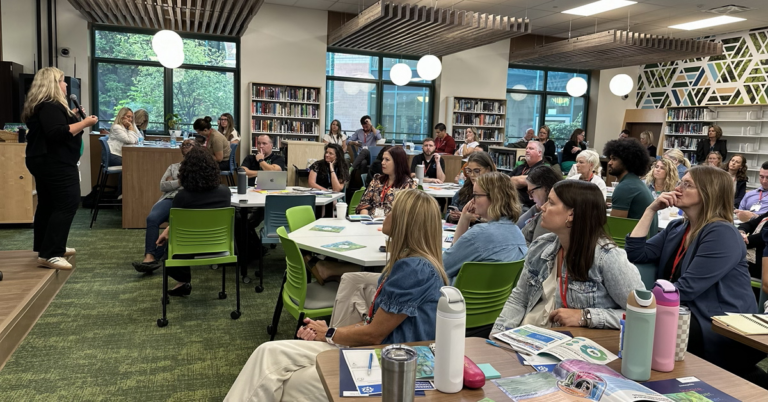By Laura Jeanne “Jeannie” Penrod
I never imagined that nearly two decades in the classroom would lead me to the heart of educational policy, but here I am.

I’m still a classroom teacher, but I’m also an advocate, a collaborator and a believer in systems-level change. My journey began in the Clark County School District, where I built my career teaching students and helping them find their voices. But it was during the 2019-20 Teach Plus Fellowship that I found mine.
That year shifted everything for me. As teachers, we’re great at encouraging students to speak up, but no one really teaches us how to advocate for ourselves or for the profession. Through the fellowship, I learned how to build authentic relationships with policymakers and how to participate meaningfully in the legislative process. I even wrote my first op-ed for the Las Vegas Review-Journal—a terrifying but empowering moment.
When the pandemic hit, I launched a pen pal program to keep students and teachers connected through remote learning. It became more than just a way to stay in touch; it became a bridge at a time when everything felt so disconnected. It also unexpectedly turned into a laboratory for trying out lesson plan ideas with students offering real-time feedback.
Over time, my classroom became a training ground for civic engagement. In 2023, my students and I took on a big challenge: advocating for financial literacy instruction across Nevada. We didn’t just talk about change we helped make it happen. My students wrote testimony, met with legislators and even learned to read and understand bills. They practiced scheduling meetings, asking tough questions and sharing their stories.
One of the phrases I use often is: “Pair statistics with your story.” I want my students to understand that lived experience is valid, powerful and often just as persuasive as a pile of data. Some of them have gone on to write op-eds of their own. A few are even working on draft language for a bill that would require a student representative on every Nevada school board. It’s real change, driven by real voices.
As a Career and Technical Education teacher in a teacher training program, I now help future educators see that advocacy isn’t a bonus skill, it’s essential. Whether you stay in the classroom or move into leadership, knowing how systems work and how to influence them is part of being an effective educator and citizen.
I’m especially proud of the work I contributed to Nevada’s Portrait of a Learner, a statewide vision that redefines what it means to be successful in school. Traits like curiosity, empathy, resilience, reflection and civic engagement are finally getting the recognition they deserve. And what makes this work so meaningful is that it wasn’t handed down from the top, it was co-created with students and teachers.
The Triple A Philosophy: authenticity, advocacy, autonomy
Penrod explains the ways in which educators and learners can lead systems change through collaboration and advocacy. Join AMAs and other Lead for Learners events »
As Nevada’s 2024 Teacher of the Year, I’ve centered my work around three core values: Authenticity, Advocacy and Autonomy. I believe in an education system that encourages students and teachers alike to be their full selves, to speak up for what they believe in and to shape the environments where they learn and teach.
Of course, challenges remain. So many of my students are afraid to take risks because they’ve been conditioned to believe that learning equals perfection. I build project-based learning experiences that emphasize self-trust and collaboration. These experiences underscore that mistakes are an inevitable and critical part of their learning journey.
My classroom is a space where students lean into their strengths, maybe that’s writing, research or public speaking, but together we solve real-world problems. It’s messy, beautiful and deeply human—just like the world they’re preparing to navigate.
Becoming a voice for change
One of the most important lessons I’ve learned is to build what I call a “coalition of the willing.” Focus your energy on the 80% who are ready to innovate, rather than getting stuck on the 20% who resist change. Culture shifts when energy shifts.
If you’re an educator wondering where to start, here’s my advice:
- Start with your strengths. Are you a relationship-builder? Connect with local leaders. A strong writer? Author an op-ed.
- Lead from where you are. You don’t need a title. You need intention and consistency.
- Bring students with you. Advocacy is more powerful and more sustainable when it’s co-owned by the people most affected by the decisions: our students.
- Celebrate experience over expertise. You don’t need to be an expert. You need to be honest, passionate and purposeful.
At the end of the day, my work is driven by a simple belief that the future of education depends on empowered teachers, engaged students and systems that reflect both. We don’t need to wait for permission we just need to start.





